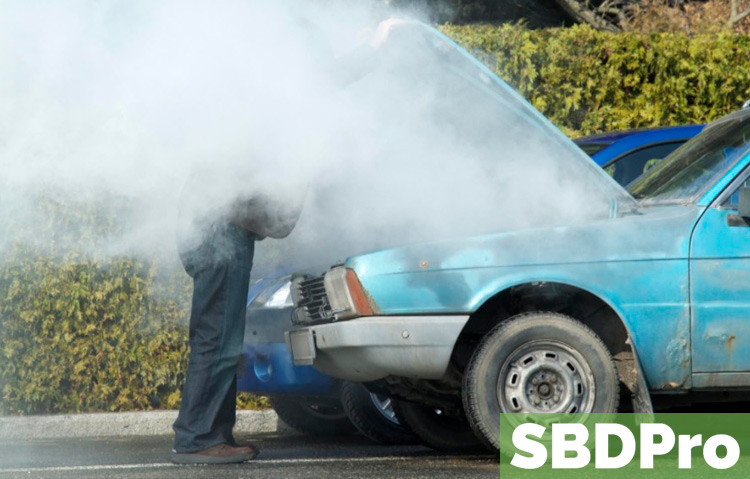For any car owner, being informed about your vehicle is a great way to get the maximum value out of it. One of the fastest ways to decrease the value of a car, however, is through damage caused by consistent overheating. Here are the top four reasons why a vehicle may suffer from overheating.
The Water Pump Has Gone Bad
If you have a bad water pump, it means that no coolant will be able to flow through the hoses of your vehicle. The coolant is what pulls heat away from the engine and helps move this heat through the radiator and out to the surroundings. If no coolant is moving, there is no means for this heat to be moved away for the engine which can cause overheating in a very short period of time.
The Thermostat May Be Faulty
Most vehicles have thermostats which can help regulate the temperature of an engine. When the engine starts to heat up, the thermostat recognizes the raise in temperature and signals for coolant to begin flowing. If this thermostat is broken or damaged, it will not be able to properly read the temperature and thus will never send the coolant through the tubing network in the engine.
This is one of the most common causes of engines overheating and should be one of the first things checked.
Your Car May Be Leaking Coolant
At times, the tubing through which coolant flows may become damaged or worn out and begin to leak coolant. As your car has less and less coolant, it is less likely to be able to regulate its internal temperature to a proper level. As a short term fix, water may be used in place of coolant while you drive to the nearest garage or dealership so that the tubing can properly be replaced.
Your Radiator Is Blocked With Debris
The radiator of your vehicle is designed to take the heat produced by your engine and radiate it out to the surrounding and much cooler air. It has hundreds of fins to increase its surface area and thus pull more heat out of the engine and expel it to the surroundings.
If this is blocked by debris of any sort, this heat can’t be expelled and can potentially cause your car to overheat. Always be sure to keep the radiator clear at all times, especially during the warmer months of the year.
Cars that frequently overheat often have a much shorter lifespan than those that operate at a more normal temperature. So if any of these common issues listed above cause your car to overheat, it is imperative to get your vehicle to a trusted garage or dealership as quickly as possible. They are best suited to both diagnose and address the cause of your vehicle overheating.
If the issue persists, it may cause irreversible damage to your car. By becoming an informed car owner, you increase the chances of maximizing the total value of your car.

